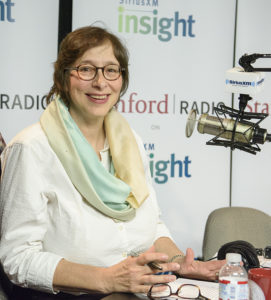Stanford Law’s Pamela Karlan Remembers Justice Ginsburg

Like Justice Thurgood Marshall before her, Justice Ruth Bader Ginsburg was one of only a handful of modern Justices who would have been a pivotal figure in American constitutional law even if she had never served on the Court. As the director of the Women’s Rights Project at the American Civil Liberties Union, she argued a sextet of cases in the 1970s that served as the foundation for modern sex-equality jurisprudence. Part of her tactical brilliance was to bring a number of these cases on behalf of men who were disadvantaged by stereotypical beliefs about the proper roles of the sexes. She knew—indeed, her own marriage to Marty Ginsburg, one of the nation’s most brilliant tax attorneys as well as a chef extraordinaire, showed this—that men and women can play many roles, and that stereotypes constrict everyone’s opportunities. Weinberger v. Wiesenfeld, 420 U.S. 636 (1975) and Califano v. Goldfarb, 430 U.S. 199 (1977)—both cases she argued—provided the basis for her opinion for the Court in United States v. Virginia, 518 U.S. 515 (1996), reminding us that the law must not rely on overbroad generalizations about the different talents, capacities, or preferences of males and females.”
But Justice Ginsburg was a woman of many parts. To be sure, she will be remembered for a series of important opinions in sex-discrimination cases—among them, in addition to the VMI case, the Court’s opinion in Sessions v. Morales-Santana, 137 S. Ct. 1678 (2017), and a dissent in Ledbetter v. Goodyear Tire & Rubber Co., 550 U.S. 618 (2007), a Stanford Supreme Court Litigation Clinic case, that galvanized a congressional response rejecting the Court’s cramped construction of Title VII. But she was long the Court’s go-to Justice for questions of civil procedure—a subject she taught as the first tenured female faculty at Columbia Law School.
The last time I saw the Justice was at the oral argument in Bostock v. Clayton County, 140 S. Ct. 1731 (2020). I was arguing that Title VII of the Civil Rights Act of 1964, which prohibits discrimination in employment “because of . . . sex” prohibits an employer from denying someone a job opportunity for being lesbian, gay, or bisexual. Justice Ginsburg’s was the first question out of the box, and she began, “Ms. Karlan, how do you answer the argument that back in 1964, this could not have been in Congress’s mind . . . .” Back in 1964, likely no one in Congress thought lesbian, gay, or bisexual people should be protected. But it was in no small part due to then-attorney Justice Ginsburg’s efforts to combat sex-based stereotypes that our Clinic could win that case today.
Read Stanford Law Faculty on Justice Ruth Bader Ginsburg’s Legacy
